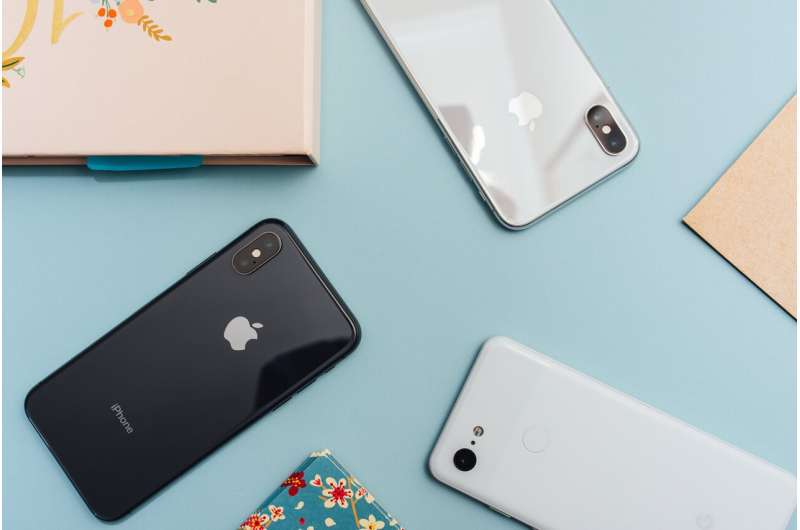Motivation is key to understanding our smartphone behavior

Why do we look at our smartphone so often, especially at times where we should be focused on other tasks? Behavioral psychologist Jonas Dora researched why smartphones are such a powerful tool of mass distraction, and found that they may actually be helpful when we experience high amounts of boredom and fatigue. He will defend his Ph.D. thesis on this research at Radboud University on 7 October.
There's a high chance that, while reading this text, you either look at your phone or even pick it up. Oftentimes, that decision is made subconsciously. As humans, we make similar subconscious choices thousands of times a day. Dora looked into what compels us to look towards our phone while working and found that boredom and fatigue can play a major role.
Motivation
Dora found that people are more likely to look at their phone when their motivation to work decreases. "When work is not engaging enough, motivation is low and as a consequence we start experiencing fatigue or boredom. We found that those feelings trigger people to stop being productive and to start idling on their smartphone for leisurely purposes," he explains. When presented with a more engaging task, people are much less likely to be distracted.
However, it remains unclear whether the presence of a smartphone itself increases fatigue or boredom. Dora: "We looked at people doing tasks in our lab, and found that some did experience fatigue quicker when their smartphone was nearby. However, engaging with the phone may then in turn prove helpful to regain motivation for the work task at hand. When people experienced a lot of fatigue or boredom it helped them to focus after taking a short smartphone break, but it proved ineffective for those who experienced only a little bit of fatigue or boredom."
Notifications
Notifications did play a large role in distracting people, as Dora found. "When we analyzed people using their phone while working, we found that they often turned to their phone very quickly after receiving notifications." Turning off your notifications might help, though Dora also found that people will still often turn to their phone to check if they are missing out. The only surefire way to avoid this type of distraction fully would be to leave your phone at home, a solution that is also not ideal.
Dora notes that further research is needed to fully understand what role the smartphone plays in people's lives. "We tried to identify whether people associate smartphones with rewards, similar to food or sex. Though people told us that they value social applications a lot and see them as rewarding, this was not always apparent when we looked at their behavior. In certain cases, the enjoyment people got from reading a rather boring magazine was similar to the enjoyment they got from using a phone. We do not yet know if phones are uniquely distracting, or if we would simply turn to other task-avoiding behavior if we did not have access to them. Understanding which people or under which circumstances people highly value their smartphone interactions will be the key to fully understand smartphone behavior and its positive and negative consequences."





















